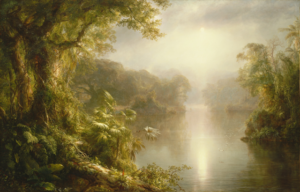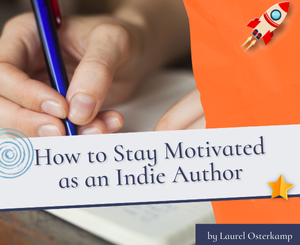Blocked? Try a Dose of Nature by Catharine Bramkamp
 Let’s welcome back monthly columnist Catharine Bramkamp as she shares with us about “Blocked? Try a Dose of Nature.”
Let’s welcome back monthly columnist Catharine Bramkamp as she shares with us about “Blocked? Try a Dose of Nature.”
***
It seems that the only time we look up is when our phone is held up arm’s length to capture another selfie.
With us always in the foreground, the background has become increasingly unimportant.
The Taj Mahal serves as a white background for a red dress.
The Grand Canyon is a check in point for the family Facebook post.
The Redwoods are just a prop for a clever photo of — me, look at me — look at me looking at me.
Writers already spend a great deal of our day alone swimming around our own thoughts.
We are already all about us. We stand solidly in the foreground. So when we are blocked or run out of ideas, thinking it’s all about us will just exacerbate the problem.
A better approach is to seek out distractions and inspiration that are bigger, more impressive that we are.
If you are an Instagram user, you’ve seen this: Nature.
Nature was once held in high regard.
Think of those massive landscapes by Church, Bierstadt, or Turner. Poets like Walt Whitman worked to capture the vastness of American nature in poetry. Alexander Von Humboldt mapped the wilds of South America and shared his ideas of a interconnected world (which inspired Church to travel to South America to paint). The Transcendentalists worked to bring the ideas of Nature and its power back to as many people as they could through lectures and books (and failed Utopian experiments.)
Nature inspired and provoked awe and humility.
Nature is bigger, more connected, more interesting that we think or remember.
Getting out in nature, as our 19th century forbearers discovered, not only is inspirational, but it’s good for us.
The air, the walking, the idea that we live in a connected world of which we are only a tiny, tiny part is all surprisingly renewing.
Feeling how small we really are in a vast world helps place most everything, even trouble with a plot point or a character, into better perspective.
And it’s not the perspective in relationship to us, it’s the perspective of IT ALL.
The Civil War gutted much of the initial enthusiasms of the 19th century philosophers and after the California gold rush there seemed nothing left to explore, and everything left, in its familiarity, to exploit. Twentieth–century man moved from wondering about the river, to damming it for electricity or dumping blue crap into it because who cared what happened downstream?
Nature, it seemed, had lost. Man had conquered.
It was a short-lived victory.
Fires, floods, hurricanes, earthquakes. Nature is not only huge, it gets even. No matter how many dams we erect, we still can’t control the rain.
Obviously, as a collective we can do a great deal of damage, but there is nothing like a surprise earthquake, a sudden flood, an escalating hurricane or forest fire, to remind us of how insignificant we are, how powerless.
Which is not as depressing as it seems.
The art to appreciating nature is to appreciate how vast It is compared to how small we are.
We, and our efforts, can be easily swallowed in a fast-rushing river or wide salt flat. The art is to balance on the abyss, and sing.
Each hour spent in nature, hiking in a national or state park, observing a flower, discovering your inner Theroux, is an opportunity to re-set both your expectations and your perspective.
When you get out of the house and step away from electronics, it’s a chance to escape your own head, the chattering, the obligations, those flying monkeys of editorial doubt.
Walking, is an excellent break for writers, and a lot has been written about it, I’m just reminding you to do it outside.
The extreme version of getting out into Nature is to find it on foreign soil. But you don’t need to hop on a plane to Agra. You can experience time and wonder under a copse of trees, on a beach, beside a stream.
Today I’ve written about the joy of overwhelm, how to hunt down places that are so interesting and crazy that it wipes out all your troubles while simultaneously giving your fevered imagination a break.
One of the very best ways to feed your creativity is to literally get out of your head.
Stop working so hard. Get out, look up, and don’t trip over a root.
***
ABOUT THE AUTHOR
 Catharine Bramkamp is the co-producer of Newbie Writers Podcast that focuses on newer writers and their concerns. She is a successful writing coach, Chief Storytelling Officer, and author of a dozen books including the Real Estate Diva Mysteries series, and The Future Girls series. She holds two degrees in English and is an adjunct university professor. After fracturing her wrist, she has figured out there is very little she is able to do with one hand tied behind her back.
Catharine Bramkamp is the co-producer of Newbie Writers Podcast that focuses on newer writers and their concerns. She is a successful writing coach, Chief Storytelling Officer, and author of a dozen books including the Real Estate Diva Mysteries series, and The Future Girls series. She holds two degrees in English and is an adjunct university professor. After fracturing her wrist, she has figured out there is very little she is able to do with one hand tied behind her back.






